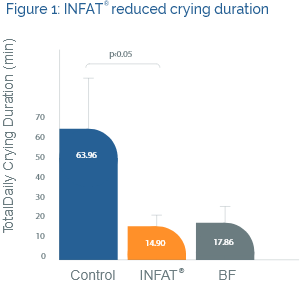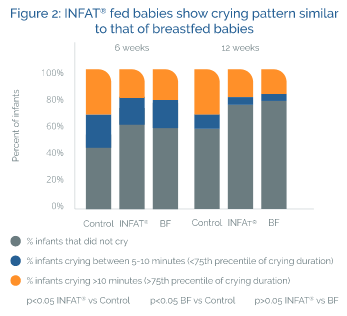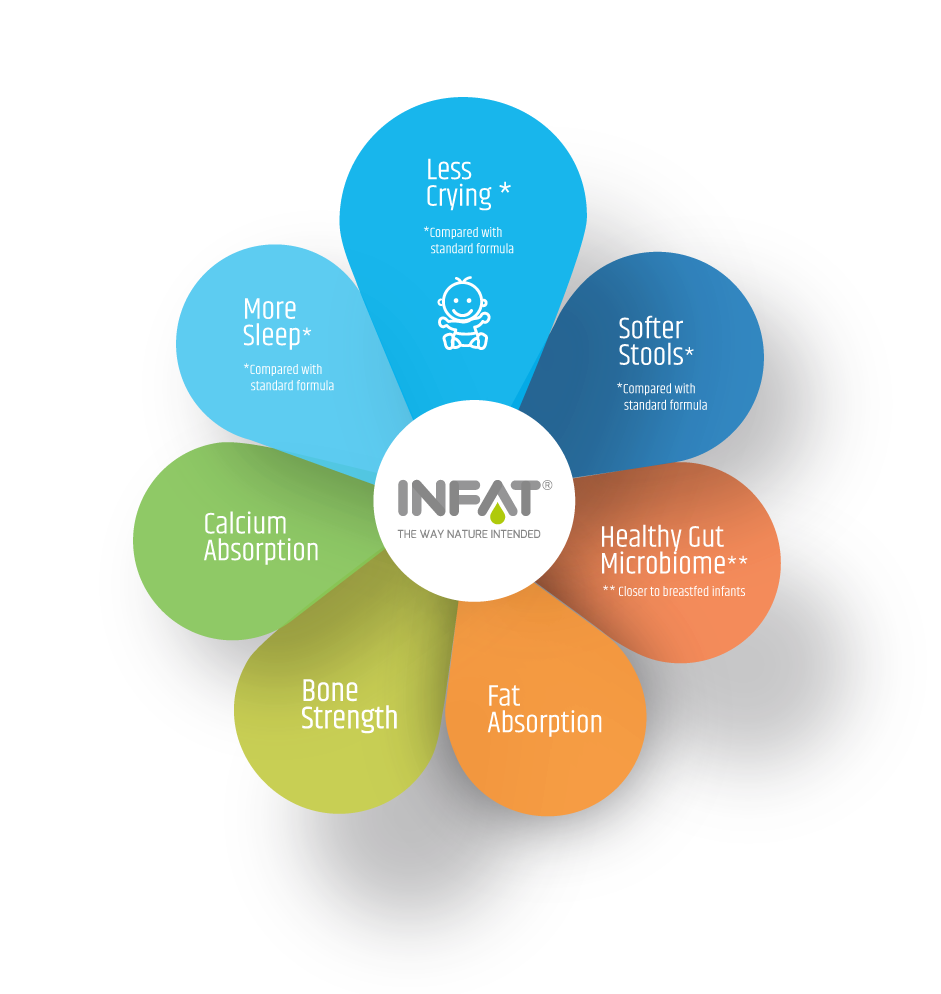Less Crying
INFAT® has been clinically shown to reduce crying time
in healthy babies by up to 75%, mainly in the late
afternoon and evening, during the first weeks of their
lives.
Why do babies cry?
Crying is a basic, instinctive response. Most infants follow a universal crying pattern during the first few months of life. Although crying is a spontaneous behavior, it can induce parental concern, which often results in requests for assistance from health care provider. Sometimes, crying is related to abdominal discomfort. This means that nutritional choices can have a major impact on a baby’s comfort and wellbeing.

INFAT® containing infant formula reduces crying time duration in healthy term infants
A double-blind, randomized controlled study on 83 healthy term infants demonstrated that feeding babies with infant formula with INFAT® for the first 12 weeks of their life affected infants’ crying pattern. The infants fed with INFAT® containing infant formula had significantly shorter crying durations when compared with infants fed with control formula. However there is no difference between the infants fed with INFAT® containing formula and breast fed group (see figure 1).
In a second double blind, randomized controlled multi-center study, the effect of INFAT® containing formula was tested on 171 healthy term Chinese infants. The results were similar and confirmed the positive effect of INFAT® on infants at 6 and 12 weeks, by reducing crying time and the number of crying episodes, on top of pre-biotics. Infants fed with INFAT® containing formula displayed crying pattern that is comparable to that of breast fed infants at 6 weeks and 12 weeks (see figure 2).
 Bar-Yoseph et al., Clinics Mother Child Health
Bar-Yoseph et al., Clinics Mother Child Health
2017, 14:2
INFAT® has a special fat structure, close to that of human milk
Human milk is the optimal choice for infants. But when breastfeeding is not practical, the closest substitute is important for an infant’s comfort, health and development.
In human breast milk and in most infant formulas, the fat - primarily triglycerides - provides about 50% of the calories that are needed for healthy growth. Triglycerides in human milk are special as the fatty acids are attached to the glycerol back bone in a unique order which cannot be found in other types of oils. Palmitic acid is the most abundant saturated fatty acid in human milk, is mainly (70-75%) located at the 2nd position.
This special component called sn2 palmitate is close in its structure to that of human milk fat, enabling easier digestion. Therefore, its possible role in affecting infants crying duration was tested.
** Closer to breastfed infants

